- Home
- Rachel Caine
Exile Texas Page 2
Exile Texas Read online
Page 2
“You got no idea what you’ve done,” he said. “No idea.”
Peyser was wrong about a lot of things, but he was absolutely right about that.
I followed the tail lights of Peyser’s cruiser into town and up to the big looming building that was the Exile County Courthouse. Both an eyesore and the most important historical building in town, it had seen the birth of the Republic of Texas, celebrated statehood, survived fire and economic famine. The Sheriff’s Office was two floors up, tucked into one of the turrets that jutted out from the faux-castle walls. State of the art plumbing for 1922. We were lucky the electrical worked well enough to power two computers, a fax machine, and a ten-cup coffee maker.
Peyser bulled his way ahead of me once we came through the swinging wooden doors and beelined for the Sheriff’s Office. I heard him start yelling, “Your damn wet-behind-the-ears city boy—” just before he slammed the door behind him, I was left standing there and wondering who it was I should go complain to; the only person around was Farlene, the secretary/dispatcher, who was putting the finishing touches on what looked like a whole new filing system. Farlene had taken a computer class a few months back, and it had gone right to her head; she was now computerizing everything, whether it was useful or not.
Her head might have been down in the files, but Farlene didn’t miss much. She glanced up at me, at the Sheriff’s Office behind her, and asked, “Nice set of shiners on Pit Bull. Tell me it wasn’t you, I was just starting to like you, darlin’.”
“Not me,” I said. I leaned on the railing that corralled her desk. “So what’s the deal with Megan Leary?”
In Sheriff Sparkman’s office, Peyser paced and waved his arms. I couldn’t see the Sheriff, but I could hear the occasional word and phrase from Peyser. My name came up, not flatteringly.
Farlene leaned back in her chair and smiled at me. She still had a young face, though I’d heard a rumor she was pushing fifty. I’d been warned about Farlene, first thing, on the morning I’d shown up for the job in Exile. Don’t go there, Jimmy had said. She’s got a husband who’s meaner than Genghis Khan, and she loves to tease. I hadn’t gone there, but I’d been offered the road map often enough.
Farlene drummed inch-and-a-half polka-dot-painted fingernails on file folders. “I don’t think you’re going to want to get into this Meg Leary mess, Dan. Let us handle it.”
“Us?”
“You know, those from around here. Like the Chief.”
The Chief being Sheriff Jimmy Sparkman, the principal reason I was in Exile. He’d started off a deputy, worked his way to the top by virtue of being smarter and fairer than any potential rivals. We’d been best friends in college, a long time ago, before he’d gone back to his home town and I’d gone on to the bright lights of Houston. He had lines on his face now, not all of them smile lines, and the fair hair had receded like the Houston tide, but he’d hung on as sheriff. People liked him. People trusted him.
Which made the mystery of Megan Leary even deeper, because I didn’t for one second believe Jimmy Sparkman would “handle” anything in the way Farlene was implying.
The Chiefs door slammed open, and Peyser came out. The bruises were just starting to fill in, and I’d been right, he was going to have a sunset delight of a pair of shiners. He’d shoved cotton balls up his nose, which didn’t strengthen his resemblance to Clark Gable.
What unsettled me was that he looked triumphant. I tried not to care.
“Dan. In here.” Jimmy Sparkman stood in the doorway. He looked just as sober and thoughtful as ever, but there was something in his eyes that made the hair stand up on the back of my neck.
I pushed open the swinging gate and went in to talk to the Chief.
He moved a folder full of old newspaper clippings off to the side, leaned back, and put his feet up on the desk. Should have looked casual, but it didn’t. There was a long silence. It got longer. I felt myself break out in a fresh coat of sweat, and wondered what I’d done in a previous life to deserve this. I’d only been in town for three months, and it wasn’t the kind of place a guy like me made instant buddies. Sparkman had hired me after I’d crashed and burned in Houston, and that meant I owed him. I didn’t like owing anybody, and I didn’t like the fact that I might have cost myself not only a job but a friendship.
Sparkman’s eyes drilled a hole in my skull. When I was well and truly worried, he finally said, “Lew said she punched him in the nose while resisting arrest. He said you let her go.”
“He left out some stuff in the middle,” I said. Sparkman nodded. He didn’t ask what that might have been.
“I should have stopped him from going out there in the first place. Don’t worry about it,” he said. As simple as that. I sighed and nodded. My eyes roamed around his desk, looking for something to do, and I saw the newspaper clippings he’d tossed aside. The top one read Sweetland Box factory destroyed, and the date was 1983 or 1984, I couldn’t tell from my angle. There were other articles, too. Lots of ’em. I wondered what termite nest Jimmy was digging into; he’d always been a curious guy.
He dragged me out of speculation with a direct question. “So. What did you think of her?”
He picked up a baseball off the corner of his desk. It had signatures all over it, but I’d never asked what team had signed it. He tossed it in the air, caught it, kept his eyes on the ball.
I said, “Cool. Collected. Hell of a mouth on her.”
“Go on.” I hadn’t surprised him yet. I watched him toss the ball and timed my next comment.
“She’s a licensed PI with a gun.”
He didn’t drop it, but he bobbled the catch. He looked at me with true alarm.
“Tell me you’re kidding.”
“I checked the carry permit. She’s legal.”
“Jesus. She say anything at all about what she was doing in town?” I shook my head. He tossed the baseball to me, and I caught it one-handed. “You want me to remind you again that you’re a just a deputy here, Dan?”
“You don’t need to.”
“You’re not a hot-shit Houston detective anymore, you do remember that?”
“I seem to recall.”
“And when I tell you that the worst thing you could do for yourself right now is ignore my advice, you’re going to pay attention, right?”
“Absolutely, Chief,” I said. I tossed the baseball back. He caught it like a fielder, not even looking at it.
“Good,” he said. “What’ve you got active right now?”
“Nothing much. The missing person thing on the Galvan kid, I wanted to go back to the school and re-interview this afternoon.”
“No need,” Jimmy shrugged and dismissed it. “Let it go. Aurelia’s been itchy to get out of this town for years now, no surprise she finally managed to make it.”
“Her mother’s chewing nails, Jimmy.”
“She’ll settle down. Look, we get thirty runaways out of this town a year. This one reads just like that last one, and the one before that.” He disposed of the matter by tossing the ball in the air and catching it. “Keep an eye on Meg. Report back to me about what she’s doing here, and who she’s doing it with. This is important, Dan. It might be damn important. Now, here’s the advice. You listening? Don’t get close to her. I know it’s tempting, but just don’t do it.”
“You act like she’s carrying the plague.”
“Let’s just say you don’t want what she’s got,” he said. “But I need to know what she’s doing, and I can’t trust Peyser or any of the others not to go off on her. So it’s up to you, if you’ll do it.”
“You going to tell me the big secret?” I asked.
He didn’t answer me for a few long seconds, then said, “Every town’s got a dirty past, Dan. She’s ours. And we don’t want her back.”
Jimmy Sparkman wasn’t the kind of man who stayed in the office with a star on his door like a prima donna waiting for curtain; he was a working sheriff, out in the streets, always ready to pitch in and do his share of the work. It struck me as strange that he wasn’t risking contact with Leary, until I remembered one very important fact.
Sheriff was an elected office.
When all was said and done, no matter the possible consequences, though, I knew I was going to do what he asked. The risk was damn near as irresistible as she was.
“I’m your man,” I said.
Chapter Two
Megan Leary’s Lexus was parked right down the street from the courthouse, in front of Town Estates Realty—the only real estate office left in town, as a matter of fact. As I cruised slowly past the big plate glass window, I saw that Leary was sitting down with Leticia Maldonado. Leticia looked none too happy about the honor. I parked down the street at the Stop ’N Wash, where Earl, town psychotic and part-time drunk, mumbled to himself and watched clothes tumble in the dryers. Whatever transaction Leary was having in the realty office was over within another five minutes, and then she got back in her car again. I took out the cell phone I still carried—souvenir of towns big enough to warrant the investment, say Hallelujah to roaming charges—and dialed Town Estates.
“Leticia,” I said. “Deputy Dan Fox. How are you?”
“Oh, I’m fine,” she said brightly. “How’s my favorite policeman?”
Every policeman was her favorite if he didn’t own his own home. “I’m good, ma’am. Listen, I was wondering—”
“It’s a good thing you called, I was going to call you today about the interest rates,” she said. “They went down again. There’s never been a better time to buy, and I have the most perfect little house on Oak Street—”
She had nearly every house on Oak Street. The town had started hemorrhaging population in the mid-seventies and was still bleeding to death. The crash of the oil boom had taken thousands, and the resulting fall of the local economy had taken thousands more. Exile had, at its 1980 peak, been home to almost 16,000; today, it was half a ghost town of less than 8,000. Despite Leticia’s hard sell, I wasn’t stupid enough to become a property owner in a town even Wal-Mart had deserted. “Not just now, Letty. I wanted to ask you about the woman who was just in to talk to you. Megan Leary?”
“Yes?” She dragged out the word, and her tone went guarded. “What do you want to know?”
I resisted the urge to say everything, the call was costing me money. “Just what she wanted in your office.”
“I couldn’t possibly—she’s a client—isn’t there a rule about talking about your clients?” Leticia’s tone told me it was a pro forma sort of protest.
“Much as I respect realtors, Letty, you aren’t a lawyer. Whatever she says to you isn’t privileged.”
“Oh.” Now she sounded downright relieved. “She wanted to get the keys to her house.”
“She has a house in town?”
“Well, her mother’s house,” she clarified. “It’s not on the market, she just lets us look in on it from time to time, you know, keep the vandals out. She said she was going to stay there for a while.”
Things were coming clear. Megan had family in town, and there was bad blood. Small towns, long memories. Not as much of a mystery as I’d thought. As for her and Peyser, well, maybe baggage from high school. Maybe she’d been the first girl to tell him he was butt ugly and twice as stupid. Damn sure not the last.
“Where’s the house?” I asked.
“Out on Coldfield Road, past the Burger Town.” There was no Burger Town. There was an empty field where a Burger Town had once been—everybody in town gave directions that way, using landmarks that were mostly decades out of date. Another reason I couldn’t get used to small-town life. “It’s number 212.”
“Thanks, Leticia. Maybe I’ll think some more about buying something for myself …”
“I have a beautiful little three bedroom—” she said.
“… later,” I finished, and hung up before she could sign me up for a first-time buyer application.
Leary’s car turned left at the stoplight of Main and Thornton; she wasn’t in much of a hurry now, cruising along at the posted speed of twenty-five miles an hour. She knew that I was following her, because there was just no way to hide a big white Ford cruiser on a street with no traffic. We were playing a little game, the two of us—and she upped the stakes by edging the accelerator, pushing her speed slowly up to thirty. She was giving me an excuse to pull her over, if I wanted to take it. I thought that was damn interesting. I decided to play the game a little longer, and dropped back further, staying at twenty-five. After all, if she was planning to stay in town, she didn’t have much anywhere to go.
Like any good prodigal child coming home, she went to the cemetery. It was tucked away in what had once been the outskirts of town, before the town had grown up around it like a slow-rising lake. If you wanted the history of Exile, the cemetery was the best place to read it; some of the markers, rubbed almost clean by the wind and sand, dated as far back as the pioneer days. There was something eerie and otherworldly about that place—the marble angels looked troubled, as if they’d intended to be someplace else, and a few were caught looking up as if they were about to spring into the sky and escape. Whoever had carved those early tombstones had been an uneasy genius.
I parked outside the chain-link fence, facing a more prosaic sort of headstone, a marble log with a squirrel perched on top, and watched as Leary picked her way through the stone forest. She was moving slowly, not as if she was looking for something but as if she was hoping like hell not to find it, and she didn’t seem to notice, or care, that I’d pulled up behind her. I lost sight of her behind the bulking overblown Greek temple that was the Patterson family crypt. She never came out the other side.
I rolled down the car window and listened as I waited. Outside the wind was brisk and cool and smelled of dust and the distant tang of burning mesquite; it was very, very quiet. I’d lain awake nights the first couple of weeks in town listening to that quiet. I could adjust to the people, the climate, the lack of nightlife, or even a decent radio station, but the lack of sound—it was a weight on my chest, cotton in my ears. It was a silence that didn’t need people at all.
She was out of sight for long enough that I started to feel an itch at the back of my neck. I got out of the cruiser and walked along the chain-link fence, sun-bleached grass crunching under my feet. Somewhere far away a dog barked, not as if he was really interested, and tree limbs creaked like an old man’s joints. The few thin sounds only pointed out the silence in between.
I couldn’t hear Megan Leary moving around at all. Each step along the fence gave me a deeper angle around the crypt, revealed more and more rows of weather-beaten tombstones; they didn’t fall in a line, and it led me to think about all those dead folks lying in heaps, at odd angles, as if the graveyard was a battleground and they lay where they’d died. I took another step, angling for a better look.
And all of a sudden, there she was. Her face was composed and very pale, and her fine dark hair drifted like strands of silk, and her eyes were blind indigo. I’d never seen a ghost, but this was as close as I ever wanted to come to it.
She was looking right at me.
Neither one of us said a word. She turned and made her way slowly through the ankle-high dry grass. She shopped tombstones for a while, then paused next to one in the corner and bent down to take a closer look. For a long time, she stayed there, head bowed—a private moment I had no business observing. I looked around the streets instead. No signs of life.
The dog had stopped barking, and the wind whispered in my ears as if it wanted to tell me a secret. No kids playing, no cars growling along, not even the distant blare of a stereo. The two of us alone in a place full of presence.
She stood up, made what looked like the sign of the cross, and walked right up to the fence where I stood. We watched each other in silence for a few long heartbeats. I couldn’t think of a damn thing to say.
“Going to follow me all day?” she asked. “By the way, you were right. I do love the historical sights in this town.”
She moved away before I could think of a snappy retort. I watched her get back in her car and drive off, and in her absence the silence got deep and dark and strange.
She had practically dared me to take a look, and I could never resist a challenge. Or a puzzle.
I followed her footsteps to the back corner and studied tombstones. She’d been looking—probably too obviously—at a gray weathered stone that sparkled cold in the sun. I read the inscription.
It read Petula J. Farmer, B. 1884, D. 1949. In small script below the incised bouquet of roses, it said: A Good time was had by all.
“Funny,” I muttered to the wind. “What were you looking for?”
We were still playing a game, one I had no intention of losing. I retraced my steps back to where I’d first spotted her, standing in the chilled shadow of the Pattersons’ gothic crypt. Even in daylight it was a gently creepy spot, and the rustle of leaves and dry grass suggested I leave secrets undisturbed. The quiet of Exile seemed to pile especially deep here among the knee-high tombstones.
I checked the padlock on the crypt door. Not surprisingly, it was broken. I swung the door open, waking a scream of hinges like a scared cat; after nothing lurched out of that darkness at me, I pulled my heavy flashlight and focused the beam inside.
Drifts of leaves like faded confetti. The startled reflective eyes of a rat that skittered off into the marble shadows as fast as its little feet could take it. As big as the Patterson crypt was, it came as something of a surprise to see that there were only four spaces in it, like file drawers, all of them labeled P for Patterson. Three of them were capped with engraved marble stones. I focused my light into the fourth.
Open, and empty of everything except another red-eyed rat.
Outside, my search turned up a couple of empty beer bottles and the pale flutter of a condom caught on a spike of grass. Cemeteries were irresistible for a certain segment of the teenage population, just like slasher movies and black eye shadow, but I couldn’t see anything that could have drawn Megan Leary to this particular spot. I looked at the tombstones, one after another, reading names.

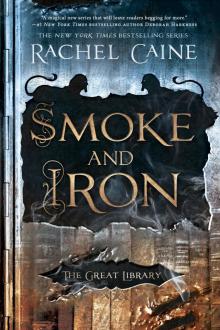 Smoke and Iron
Smoke and Iron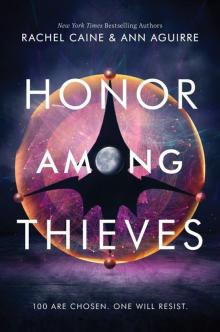 Honor Among Thieves
Honor Among Thieves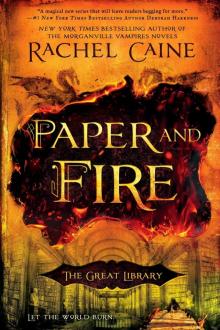 Paper and Fire
Paper and Fire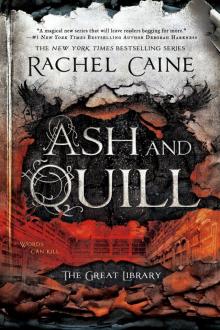 Ash and Quill
Ash and Quill Wolfhunter River (Stillhouse Lake Book 3)
Wolfhunter River (Stillhouse Lake Book 3) Undone
Undone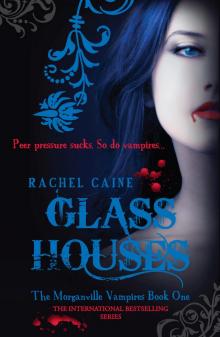 Glass Houses
Glass Houses Prince of Shadows
Prince of Shadows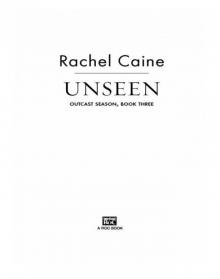 Unseen
Unseen Midnight at Mart's
Midnight at Mart's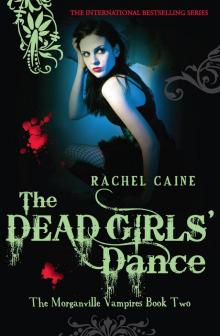 The Dead Girls Dance
The Dead Girls Dance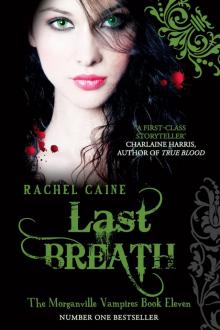 Last Breath
Last Breath Stillhouse Lake
Stillhouse Lake Daylighters
Daylighters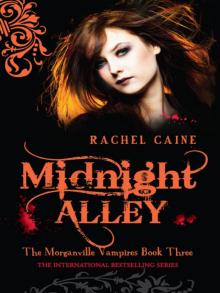 Midnight Alley
Midnight Alley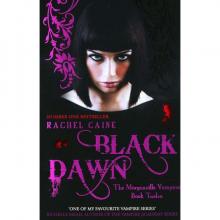 Black Dawn
Black Dawn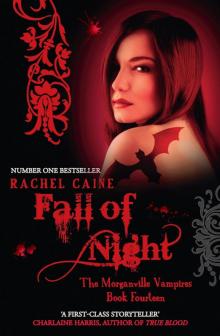 Fall of Night
Fall of Night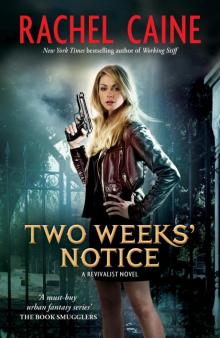 Two Weeks Notice
Two Weeks Notice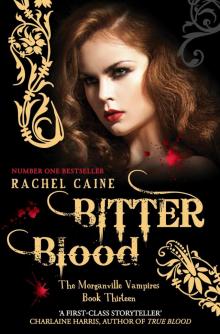 Bitter Blood
Bitter Blood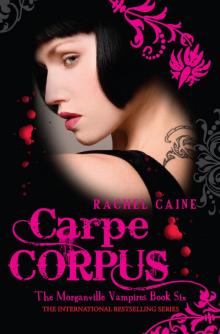 Carpe Corpus
Carpe Corpus Kiss of Death
Kiss of Death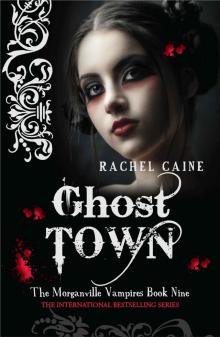 Ghost Town
Ghost Town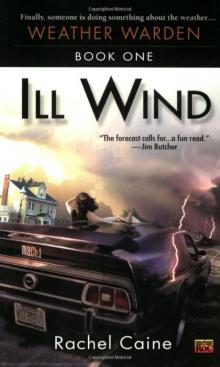 Ill Wind
Ill Wind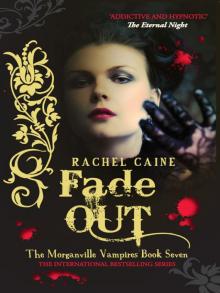 Fade Out
Fade Out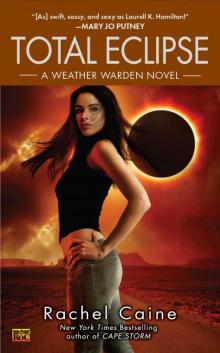 Total Eclipse
Total Eclipse Honor Lost
Honor Lost Thin Air
Thin Air Black Corner
Black Corner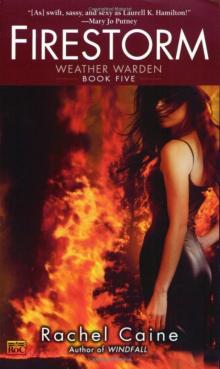 Firestorm
Firestorm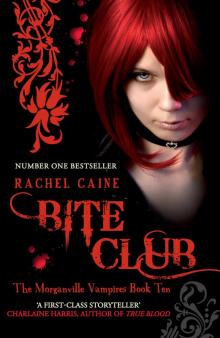 Bite Club
Bite Club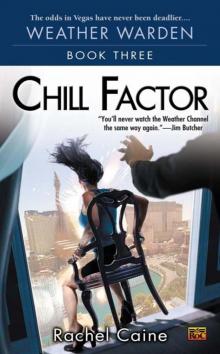 Chill Factor
Chill Factor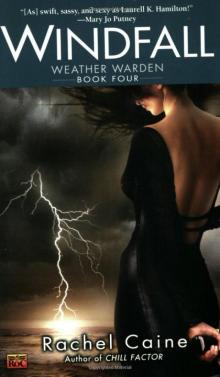 Windfall
Windfall Oasis
Oasis Devils Bargain
Devils Bargain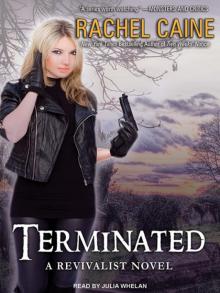 Terminated
Terminated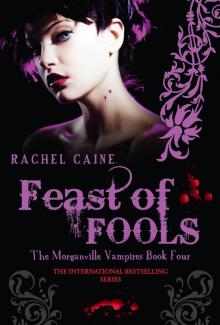 Feast of Fools
Feast of Fools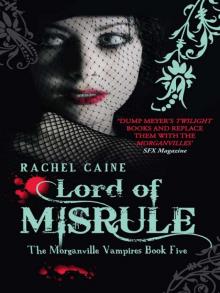 Lord of Misrule
Lord of Misrule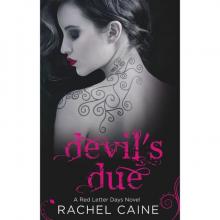 Devils Due
Devils Due Ladies' Night
Ladies' Night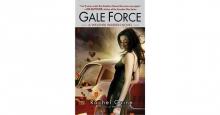 Gale Force
Gale Force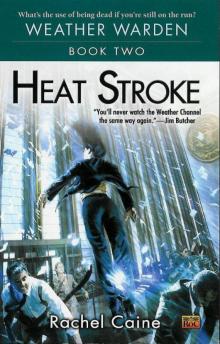 Heat Stroke
Heat Stroke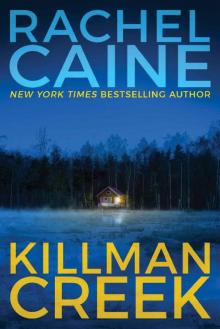 Killman Creek
Killman Creek Sword and Pen
Sword and Pen Cape Storm
Cape Storm Unbroken
Unbroken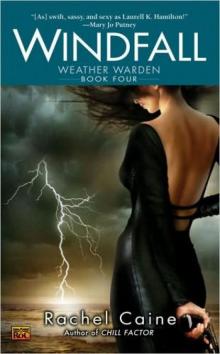 Windfall tww-4
Windfall tww-4 Heartbreak Bay (Stillhouse Lake)
Heartbreak Bay (Stillhouse Lake) Daylighters: The Morganville Vampires
Daylighters: The Morganville Vampires Duty
Duty Honor Bound
Honor Bound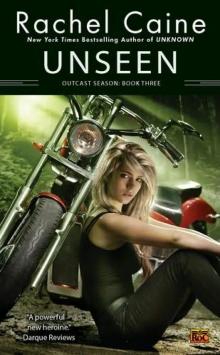 Unseen os-3
Unseen os-3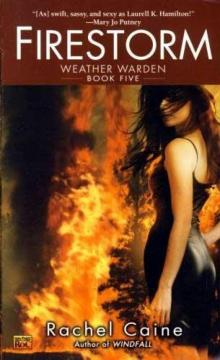 Firestorm tww-5
Firestorm tww-5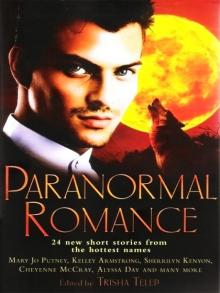 Blue Crush
Blue Crush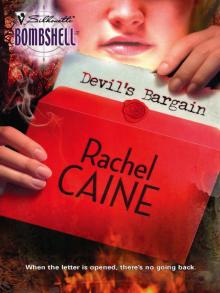 Devil s Bargain
Devil s Bargain Prince of Shadows: A Novel of Romeo and Juliet
Prince of Shadows: A Novel of Romeo and Juliet Bite Club mv-10
Bite Club mv-10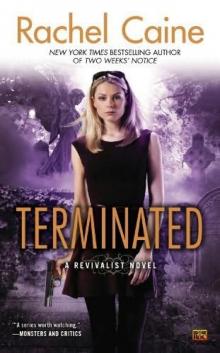 Terminated tr-3
Terminated tr-3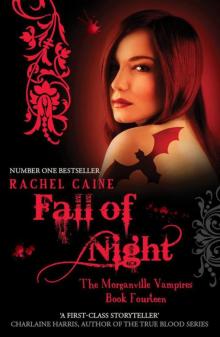 The Morganville Vampires 14 - Fall of Night
The Morganville Vampires 14 - Fall of Night Bitter Blood tmv-13
Bitter Blood tmv-13 Falling for Grace
Falling for Grace The True Blood of Martyrs
The True Blood of Martyrs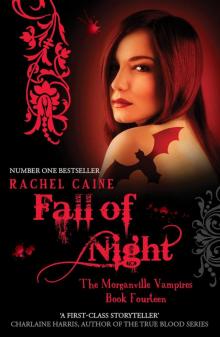 Fall of Night (The Morganville Vampires)
Fall of Night (The Morganville Vampires) Devil's Bargain rld-1
Devil's Bargain rld-1 The Morganville Vampires (Books 1-8)
The Morganville Vampires (Books 1-8)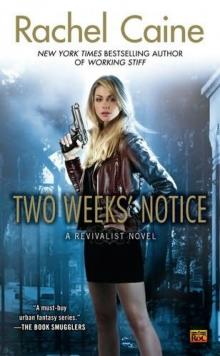 Two Weeks' Notice tr-2
Two Weeks' Notice tr-2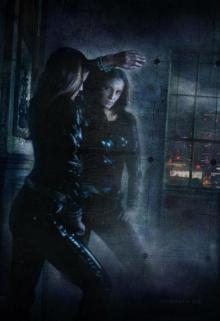 An Affinity for Blue
An Affinity for Blue Caine, Rachel-Short Stories
Caine, Rachel-Short Stories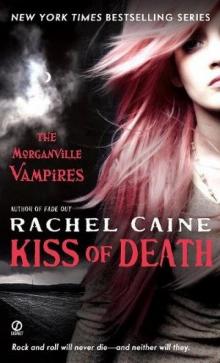 Kiss of Death tmv-8
Kiss of Death tmv-8 WITCHGRAVE
WITCHGRAVE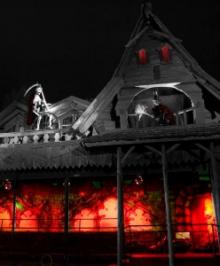 Dark Rides
Dark Rides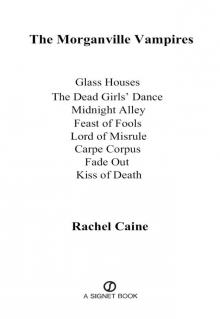 The Morganville Vampires
The Morganville Vampires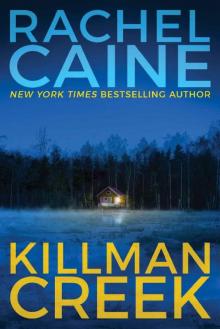 Killman Creek (Stillhouse Lake Series Book 2)
Killman Creek (Stillhouse Lake Series Book 2) Midnight Bites
Midnight Bites Line of Sight
Line of Sight![Morganville Vampires [01] Glass Houses Read online](http://i1.bookreadfree.com/i1/03/30/morganville_vampires_01_glass_houses_preview.jpg) Morganville Vampires [01] Glass Houses
Morganville Vampires [01] Glass Houses Black Dawn tmv-12
Black Dawn tmv-12 Midnight at Mart ww-103
Midnight at Mart ww-103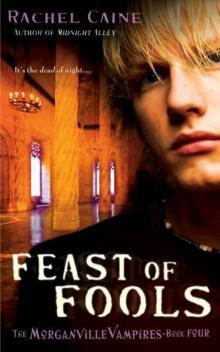 Feast of Fools tmv-4
Feast of Fools tmv-4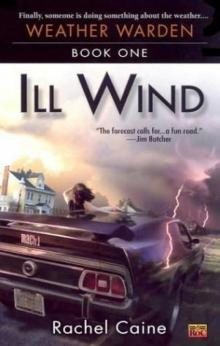 Ill Wind tww-1
Ill Wind tww-1 Devil's Due rld-2
Devil's Due rld-2 Black Dawn: The Morganville Vampires
Black Dawn: The Morganville Vampires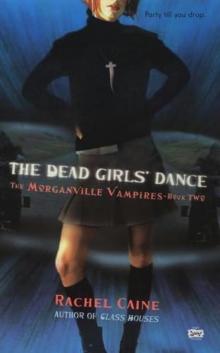 Dead Girls' Dance tmv-2
Dead Girls' Dance tmv-2 Minute Maids
Minute Maids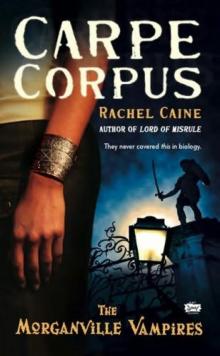 Carpe Corpus tmv-6
Carpe Corpus tmv-6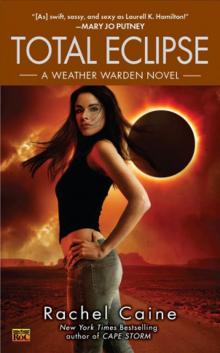 Total Eclipse tww-9
Total Eclipse tww-9 Ghost Town mv-9
Ghost Town mv-9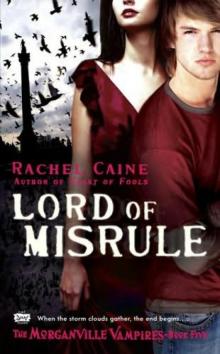 Lord of Misrule tmv-5
Lord of Misrule tmv-5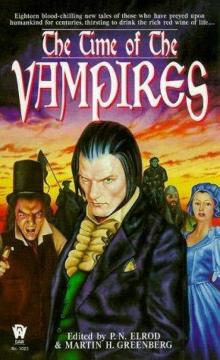 Faith Like Wine
Faith Like Wine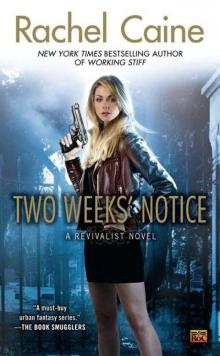 Two Weeks' Notice: A Revivalist Novel
Two Weeks' Notice: A Revivalist Novel Daylighters tmv-15
Daylighters tmv-15 Stamps, Vamps & Tramps (A Three Little Words Anthology)
Stamps, Vamps & Tramps (A Three Little Words Anthology) Unbroken os-4
Unbroken os-4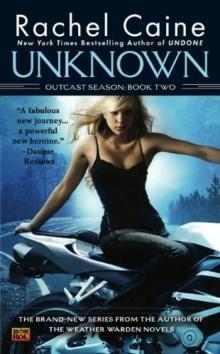 Unknown os-2
Unknown os-2 4 - Unbroken
4 - Unbroken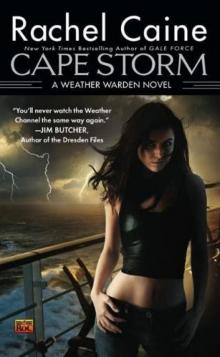 Cape Storm tww-8
Cape Storm tww-8 Last Breath tmv-11
Last Breath tmv-11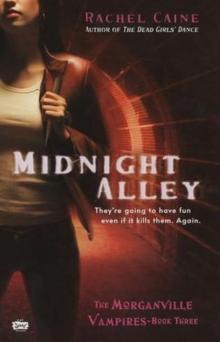 Midnight Alley tmv-3
Midnight Alley tmv-3 Glass Houses tmv-1
Glass Houses tmv-1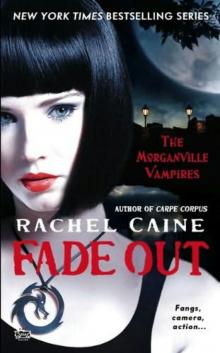 Fade Out tmv-7
Fade Out tmv-7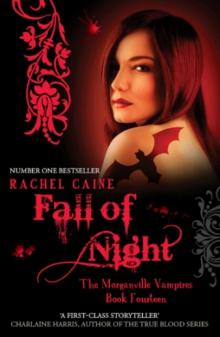 Fall of Night tmv-14
Fall of Night tmv-14 Godfellas
Godfellas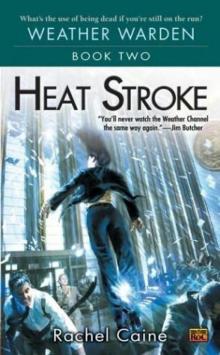 Heat Stroke ww-2
Heat Stroke ww-2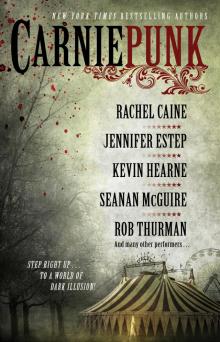 Carniepunk
Carniepunk Oasis ww-102
Oasis ww-102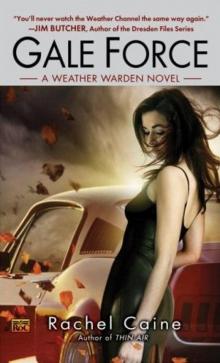 Gale Force tww-7
Gale Force tww-7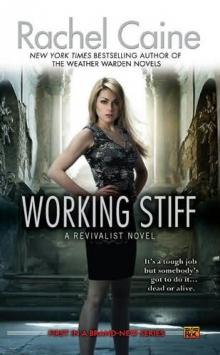 Working Stiff tr-1
Working Stiff tr-1